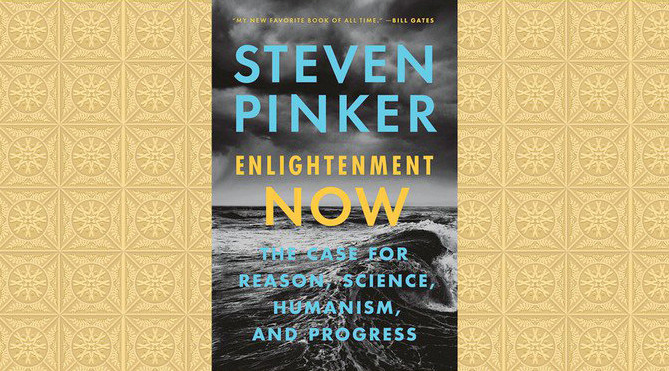BEIRUT: Canadian-American cognitive scientist Steven Pinker has something to get off his chest and he does so on the very first page of his recently published book, “Enlightenment Now.” The author lashes out against anyone harboring a gloomy vision of the world today, writing: “In the pages that follow, I will show that this bleak assessment of the state of the world is wrong. And not just a little wrong — wrong, wrong, flat-earth wrong, couldn’t-be-more wrong.”
This book is an “attempt to restate the ideals of the Enlightenment,” an epoch when the author claims that reason, science and humanism were revered.
Bill Gates called it his “new favorite book of all time” and described it in his blog as “a holistic picture of how and why the world is getting better.”
In the book, Pinker urges readers to swipe left on the end-is-nigh headlines that flood our smartphones and instead follow the data. He manages to show that life, health, prosperity, safety, peace, knowledge and happiness are on the rise across the world and posits that reason and science are to be thanked for the positive progress.
However, the book is not without its critics.
Writing for Vox, Aaron R. Hanlon, a visiting scholar at the University of Cambridge, says that the author bases his arguments on a misinterpretation of Enlightenment scholars.
“It turns out that Enlightenment thinkers themselves… had very different ideas from Pinker himself about progress. David A. Bell, a Princeton historian of Enlightenment France, has observed (in The Nation publication) that ‘since (Pinker) does not engage in any serious analysis of Enlightenment authors, he avoids having to contend seriously with the awkward fact that by far the most popular of them, Jean-Jacques Rousseau, was a fierce critic of most forms of progress” if it was driven by reason, as Rousseau believed that the cost would be moral degradation.
Although the author does seem to rely on quantitative data to back some fantastical arguments — and it can be said that he brushes aside legitimate criticism--- — he is the first to admit that “we will never have a perfect world, and it would be dangerous to seek one. But there is no limit to the betterments we can attain if we continue to apply knowledge to enhance human flourishing.”

























